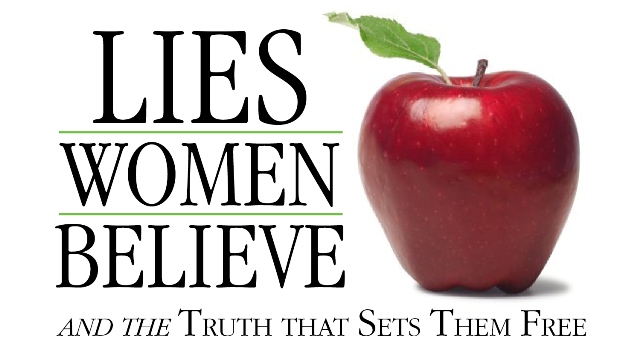If you’re a person who has frequented the internet over the last month, you’ve probably heard, seen, or read discussions around whether or not companies or governments should “ban” single-use plastic straws. On one side you have people who believe that we should eliminate– or at least reduce our reliance on– single-use plastics, and disposable straws are their current target. On the other side, disability activists argue that there aren’t good alternatives to single-use plastic straws and that disabled people’s need to stay hydrated without dying due to anaphylaxis or aspiration is more important than the 0.025% of plastic floating around in our oceans, especially when abled people can just stop using disposable straws if they want to.
Another facet of the discussion has tried to point out that if you actually want to tackle the problem of plastic waste polluting our oceans, we should look at elements like industrial fishing methods, since 46% of the Great Pacific Garbage Patch is plastic fishing nets and the rest is almost entirely other pieces of fishing gear. Any environmental or climate change concern is going to have similar elements: the bulk of the waste and pollution is caused by entire industries and corporations; altering individual behavior is good but ultimately ineffective. If we actually want to address plastic waste in our oceans, we need to change the behaviors of industries and entire economies, not whether or not Deborah gets a straw in her mocha frappuccino.
Unfortunately, changing the course of an entire industry is much more difficult than telling me, individually, not to litter or use plastic straws– and it is difficult because corporations have a vested interest in making it difficult. Moving away from single-use plastics will hurt their bottom line, so they throw money at lobbyists and politicians and regulators to make sure they can keep strangling our planet with their garbage. Starbucks can announce that they’re going to phase out plastic straws and get plenty of kudos and accolades … and keep on using unrecyclable plastic-lined paper cups to the tune of 4 billion cups per year. They could start using biodegradable, compostable, or recyclable cups, but they won’t.
Industries and corporations continuously point fingers at individual consumer habits so they don’t have to make any substantive changes. Take the “Crying Indian” ad from 1971– it was paid for by a conglomeration of some of the biggest polluters in the country in order to take the focus off packaging and throw-away containers and put that focus on individual consumers. That’s the whole point: make the conversation about Deborah’s frappucino and not how Proctor & Gamble is packaging its shampoo in the Philippines.
***
All of the above functions extremely well as a metaphor for the common American Christian articulation of sin as a “heart issue.” Maybe like me you’ve noticed a pattern of influential Christian ministers referring to racism or sexism as a “heart issue,” and found it as frustrating as I do.
Framing racism or other systemic social problems as a “heart issue” accomplishes a few things. First, it centers Christianity in the conversation. If racism is a “heart issue,” then the solution is conversion or repentance– all the individually racist person needs to do is repent and allow Jesus to change their heart. If a racist person accepts Jesus into their heart and once they’ve done so, follows the Spirit’s guidance away from prejudice and towards acceptance– then racism is solved with the Christian religion. Saying racism is a “heart issue” means that we don’t need affirmative action, we need Evangelical Jesus.
Second, it allows people and their communities to escape any feeling of responsibility or guilt. If racism is truly a single person’s heart issue, and the resolution is for that person to repent, then there’s nothing that Bob or Susie is responsible for when Jim is a racist turd. If Jim is a Christian, then Jesus and the Holy Spirit will handle it. If he’s not, then there’s nothing more for Bob or Susie to do– they just have to continue being Jim’s friend so they can be a “good witness” for Christ in his life. What good would it do to tell Jim that he’s being racist, if it’s a heart issue? No, we just need to “love on him” more and “be the only Bible he’ll ever see.”
Lastly, if racism is an individual’s “heart issue,” then it’s not systemic. An indiviudal’s heart issue does not require a church, as an institution, to change. Heart issues do not ask the Church to examine itself or shift course; in fact, if racism is a heart issue than most Christian churches are doing the exactly right thing by harping on a “personal relationship with Christ” and telling its members to repent of private, individual sin.
If we were to communally acknowledge that racism or sexism or ableism is systemic, then we’d have to commit to a massive undertaking. We’d have to take a hard look at how our seminaries and ordinations and denominations and alliances and conventions operate and be honest with ourselves for the first time in history. We’d have to overhaul power structures, ordination tracks, and hiring processes– and everyone who currently enjoys all the cultural power, who wield all the political influence, would lose their access and prestige. The leadership would have to admit that it’s not God who brought them to the position they hold, not their commitment to the faith, not their hard work, but systemic, structural practices that marginalize anyone who isn’t a cis, white, heterosexual man.
It’s not coincidence that the people who stand to lose the most power, influence, and money are the ones claiming that sins like racism are an individual problem and the solution is to maintain the status quo.




